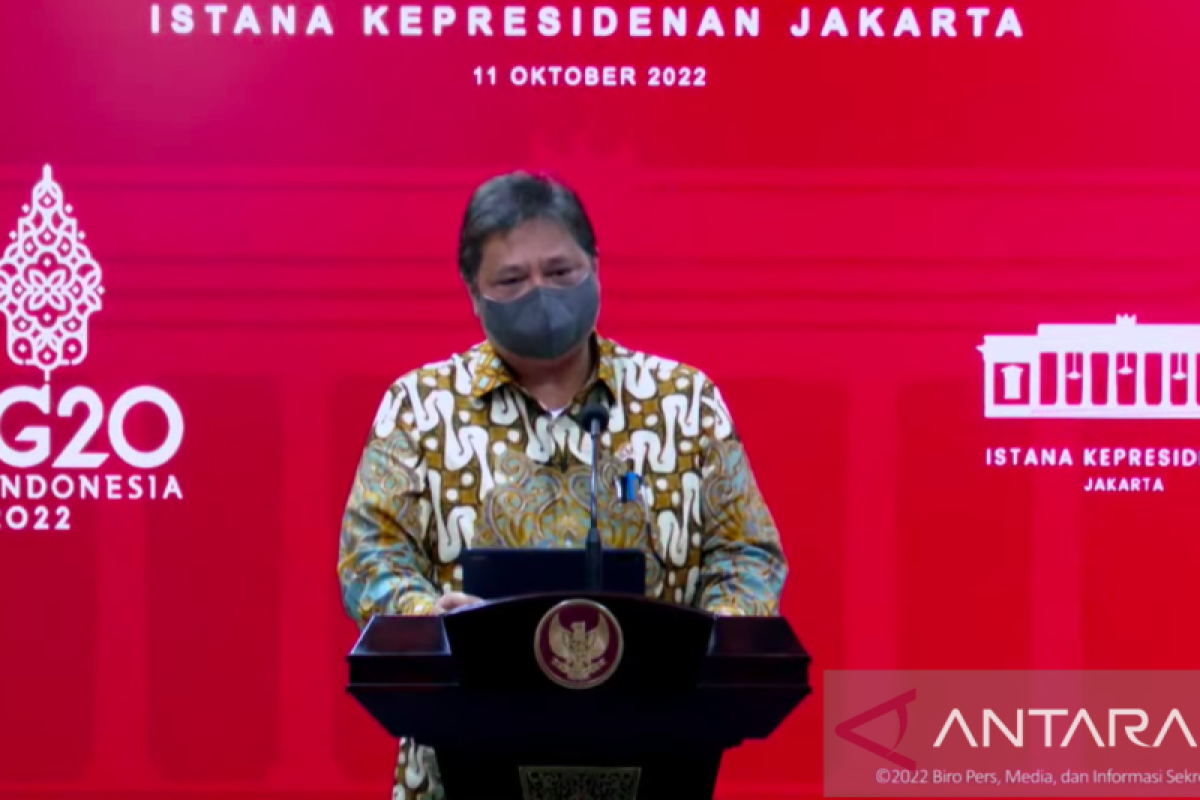"It is bigger than the crisis in 1998 when it occurred in several ASEAN countries. President Jokowi has reminded us to make policies carefully," Hartarto informed after a plenary cabinet meeting at the State Palace, Jakarta, on Tuesday.
According to him, currently, Indonesia's external resilience is quite strong. The rupiah exchange rate has recorded a depreciation of up to six percent. However, the rupiah’s movement is still stronger than the currencies of other countries.
"It is relatively higher than other countries, including Canada, Switzerland, Thailand, Nepal, as well as the United Kingdom. Indonesia is relatively more moderate than some other countries," the minister noted.
He also outlined Indonesia's other external resilience indicators, such as the exchange rate volatility index of 30.49 as well as the investment risk premium (credit default swap/CDS), which is lower than that of Mexico, Brazil, Turkey, and South Africa.
Related news: Developing countries' resilience important amid global crisis
The government is still optimistic that Indonesia's economy will continue to grow, the minister said. In 2023, the Indonesian economy will grow in the range of 4.8–5.2 percent, he predicted.
The worsening global economic situation was also highlighted by President Widodo on Tuesday after he received a report from the Minister of Finance, Sri Mulyani Indrawati, from Washington D.C., the United States.
The President noted that many countries have applied to the International Monetary Fund (IMF) for financial assistance.
"This morning, I received a call from the Minister of Finance from Washington D.C. She said that 28 countries had queued up as IMF patients," he said in Jakarta.
Currently, the global economic situation is worsening due to the impact of the COVID-19 pandemic and the conflict between Russia and Ukraine, which have disrupted the food and energy supply chain and also triggered a financial crisis, he added.
The President further said that 66 countries are currently vulnerable to collapse due to the global situation, which has become difficult to predict.
"International institutions say there are 66 countries in a vulnerable position to collapse. Currently, some 345 million people in 82 countries are suffering from acute shortages and hunger, or a food crisis," he added.
Related news: Collaboration among states crusial to address global crisis: Lemhannas
Related news: Jokowi emphasizes need for quick-wit solutions to face global crises
Translator: Indra Arief P, Resinta S
Editor: Suharto
Copyright © ANTARA 2022












